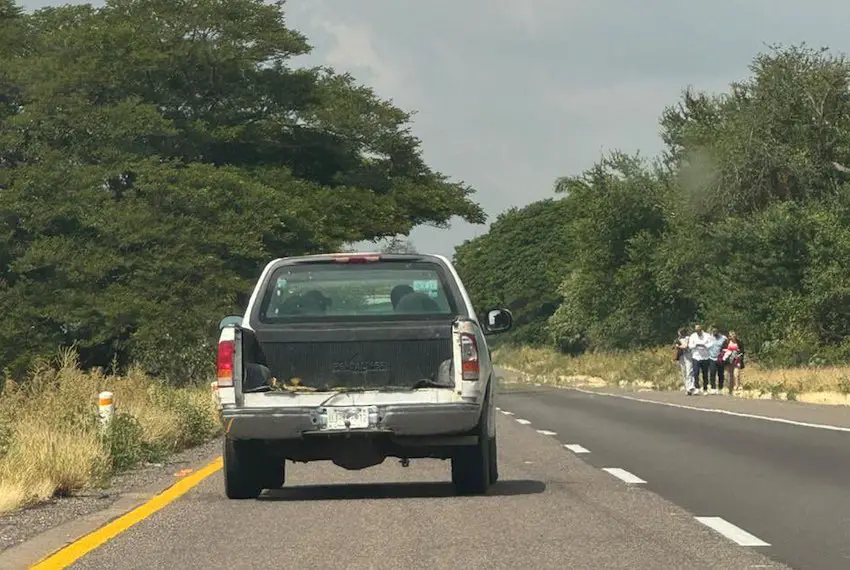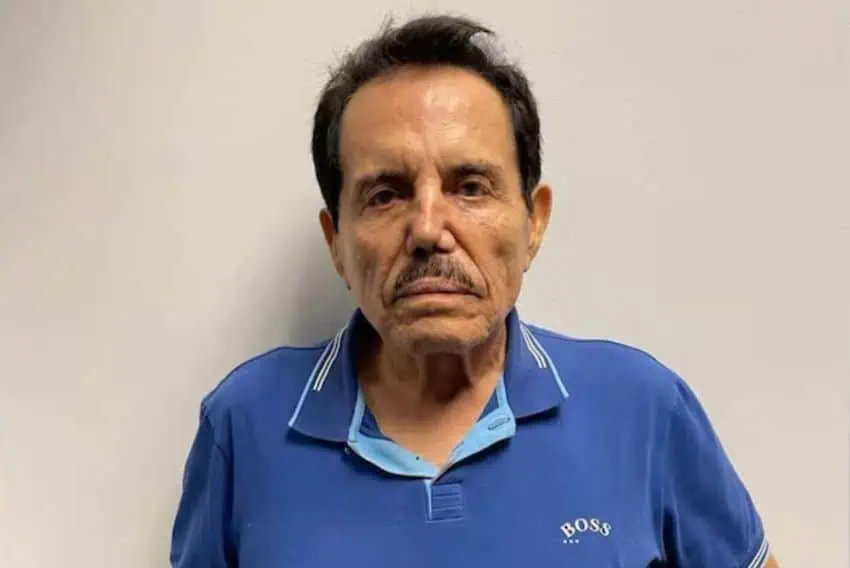Two public officials in the state of Sinaloa — including the mayor-elect of Mazatlán, Estrella Palacios Domínguez — were attacked and robbed by armed men while traveling Monday on the Mazatlán-Culiacán highway.
Palacios and San Ignacio Mayor Octavio Bastidas Manjarrez were both unharmed, but the separate robbery incidents marked the latest in a string of violent crimes along the state’s roadways, signaling escalating insecurity in Sinaloa.

Palacios, who is scheduled to be sworn in on Nov. 1, was robbed near the Costa Rica toll booth, approximately 72 kilometers south of Culiacán, while en route to a meeting with state officials. Armed men in a red pickup truck forced her and her companions out of their vehicle, stealing her 2021 Tahoe before fleeing.
Hours earlier, Bastidas was similarly robbed of his truck while passing through the municipality of Elota, a known hotspot for such attacks.
Both robberies occurred in broad daylight on Carretera Federal 15-D — a major highway from the U.S.-Mexico border to Mexico City that many people take to get to Mazatlán.
The incidents reflect a broader surge in violence across the state, which has been battling insecurity for weeks.
On the same day as the attacks on Palacios and Bastidas, Sinaloa recorded three homicides, adding to the state’s grim total of 159 deaths in just 28 days.
The surge of lawlessness has been linked to a power struggle following the U.S. arrests of Ismael “El Mayo” Zambada, a cofounder of the Sinaloa Cartel, and Joaquín Guzmán López, the man who allegedly orchestrated Zambada’s capture.

Guzmán’s father is Joaquín “El Chapo” Guzmán Loera — the other cofounder of the Sinaloa Cartel who is currently serving a life sentence in U.S. prison.
Sinaloa Cartel factions loyal to Zambada (known as “Los Mayos”) are reportedly at odds with those loyal to El Chapo and his sons (known collectively as “Los Chapitos”).
The violence — which started in and around the capital of Culiacán, a Sinaloa Cartel stronghold — has not been limited to political figures.
Along the same highway, a truck driver narrowly escaped a robbery attempt by evading gunmen, though his vehicle overturned in the process.
And elsewhere in Sinaloa, two charred bodies were found in the municipality of Eldorado, and confrontations between the National Guard and armed civilians have become increasingly common.
The violence has taken a toll on Sinaloa’s economy, particularly in tourist destinations like Mazatlán.
The Mazatlán tourism sector has reported significant financial losses, with hotel occupancy plummeting to 40% last weekend, compared to 85% around Mexico’s Independence Day in mid-September.
Stores and restaurants have been forced to reduce hours, and the temporary closure of at least five businesses has been recorded. Roadside sales aimed at travelers have suffered, as have other tourism-related industries — such as taxicabs and beach activities.
Nautical tourism services have reported an 80% drop in customers for banana boats, catamaran and parasailing.
“Weekends are good for sales, but the last few have been very empty,” said Alfredo Figueroa, leader of Ecotaxis Rojos de Mazatlán. “We hope that the situation will improve soon so that people can feel confident about going out on the road.”

Culiacán, in central Sinaloa, is 220 kilometers from Mazatlán in the southwest corner of the Pacific Coast state.
President Claudia Sheinbaum announced that her security cabinet was set to visit Sinaloa on Tuesday to assess the situation and collaborate with local authorities, including Governor Rubén Rocha Moya.
Federal officials have emphasized the need for coordinated efforts to restore order, though they acknowledge that solving the problem will take time.
With reports from El Universal, El Financiero, El Sol de Mazatlán, Excélsior, Milenio and López Dóriga Digital
